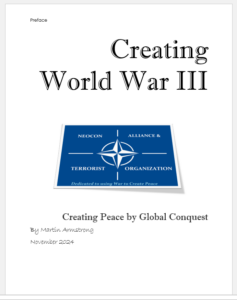The Gray Areas of Authority: A Dive into the Potential for Martial Law and Its Implications

As we navigate an increasingly turbulent geopolitical landscape, there are pressing questions about government authority in times of crisis. One question that arises in hypothetical discussions of conflict is: If President Biden were to declare martial law in the event of a world war, could he negate the ongoing transition of power from the Trump administration? This inquiry begs a deeper look into the intricacies of martial law and constitutional powers—an exploration that is crucial for the informed investor at Extreme Investor Network.
Unpacking the Question of Martial Law
It’s essential to note that many interpretations of the law, including those from AI systems, can often miss the nuanced contexts and historical precedents that shape our understanding of such queries. While AI tools can scour vast amounts of information, they don’t have the human insight required to interpret these legalities effectively. As we’ve seen in our discussions and reports, such as Creating World War III, the complexities surrounding martial law extend beyond mere definitions.
When looking historically, there was one significant occasion during the 20th century when martial law was declared in the U.S., highlighting how governmental powers can radically shift during a crisis. What might this mean for today?
A Historical Lens on Martial Law
The declaration of martial law has profound implications. If martial law is invoked, it could fundamentally alter the functioning of the government, including the judicial system. It’s crucial to understand that while the president has a significant degree of authority, even they are limited by constitutional restrictions.
During the historical declaration of martial law, it was observed that federal courts can be shut down if the president deems it necessary for maintaining order. The caveat? The only court that is constitutionally mandated—and thus cannot be so easily dismantled—is the Supreme Court. This means that all other courts operate at the discretion of the federal government, leading to vast ramifications for the legal system.
A Case of Instinct and Economic Stability
At Extreme Investor Network, we believe that understanding these legal frameworks isn’t just an academic exercise; it has real-world implications for investors and economic stability. Just as one would not sit at a poker table without reading the room, savvy investors must be aware of the political atmosphere and how emergency declarations can affect market certainty.
We argue that while AI algorithms can process financial data and market trends, they lack the instinct necessary for trading in a rapidly changing environment. You can’t code intuition—a quality that’s critical when navigating the uncertainty often triggered by political maneuvers such as the establishment of martial law.
The Bottom Line: Knowledge is Power
As the geopolitical climate continues to shift, being prepared with knowledge of governmental authority and historical context is paramount for any investor. This awareness helps you read the subtle cues in the market and the economy, much like a skilled driver gauges the movements of surrounding cars.
Explore our latest report, Creating World War III, to gain a deeper understanding of these dynamics and hear insights shared by experts at our World Economic Conferences. Knowledge equips you to make informed decisions and navigate the potentially treacherous waters of economic disruption.
In challenging times, those who are prepared will emerge not just unscathed, but strategically positioned to capitalize on new opportunities. Join us at Extreme Investor Network, where we delve deep into the intersection of economics, politics, and investment, providing you with the knowledge that sets you apart in the crowded market landscape.

Stay informed, stay engaged, and prepare for what lies ahead. Together, we can exploit the complexities of today’s global economy to our advantage.

